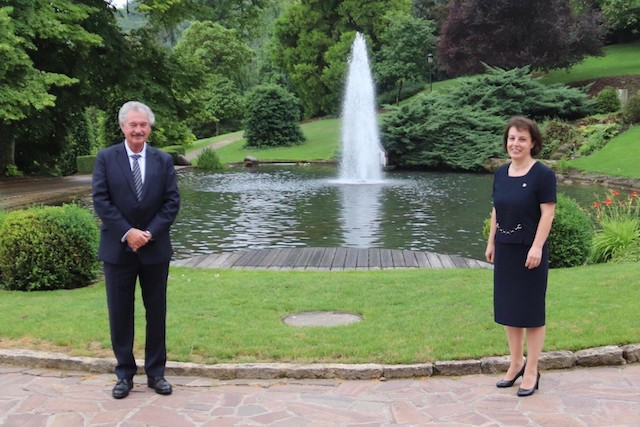Kosovo is considered a potential candidate and in 2016 entered into a stabilisation and association agreement with the EU. This agreement forms part of the accession process and establishes permanent cooperation structures around political and economic cooperation, rule of law, democratic principles and human rights.
Luxembourg supports “Kosovo’s European perspective, stressing the importance of Kosovan authorities to fully implement the stabilisation and association agreement,” a statement by the foreign ministry said.
Asselborn and Gërvalla also discussed the Belgrade-Pristina dialogue. The normalisation of relations between Serbia and Kosovo is considered a key element in the EU accession process by Brussels. Talks stalled last year but are set to resume.
Kosovo unilaterally declared independence from Serbia in 2008 and expects recognition of statehood. But Serbian president Aleksandar Vučić last year demanded concessions in return for recognising Kosovo, saying he would be willing to drop EU membership if Serbia receives “nothing in return”.
Serbia is supposed to join the EU in 2025 but French president Emmanuel Macron in 2019 cast doubt on the timeline, saying comprehensive reform was still necessary. Luxembourg’s premier Xavier Bettel (DP) during a visit by PM Ana Brnabić the same year urged the country to do more on rule of law, the separation of powers, press freedom, the fight against corruption and regional cooperation.
“The dialogue between Pristina and Belgrade is crucial and an integral part of the process of European integration of Kosovo,” Asselborn said during the meeting on 29 June.
Gërvalla during her visit also met with economy and development cooperation minister Franz Fayot. Luxembourg supports Kosovo through a development cooperation agreement, spending €2.84m in 2019, the latest data available, on projects in health, education and technical assistance.
Kosovo together with Bosnia and Herzegovina is considered a potential candidate for EU membership by Brussels. Other Western Balkan countries--Albania, Montenegro, North Macedonia and Serbia--are in negotiations with the EU as candidates.
